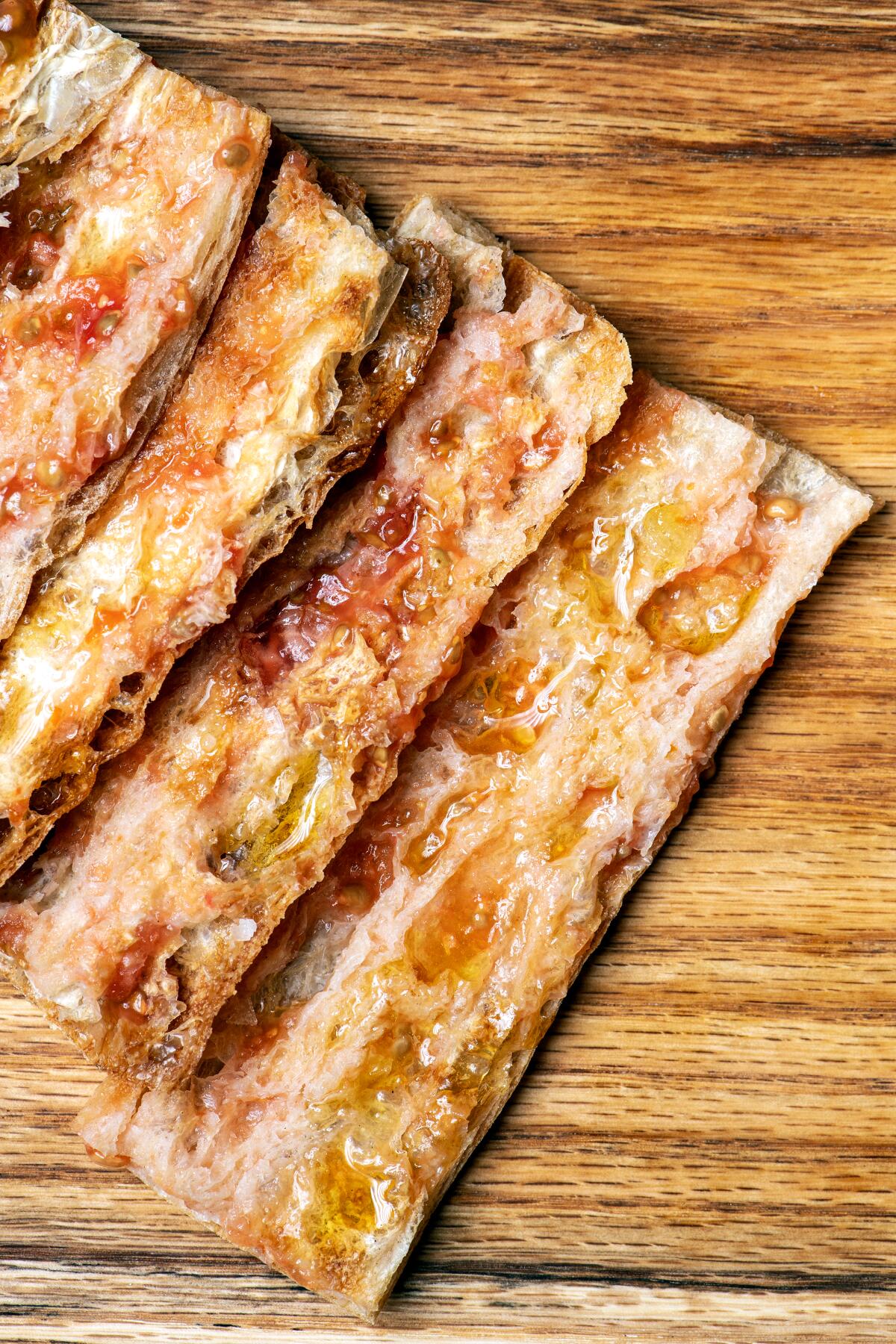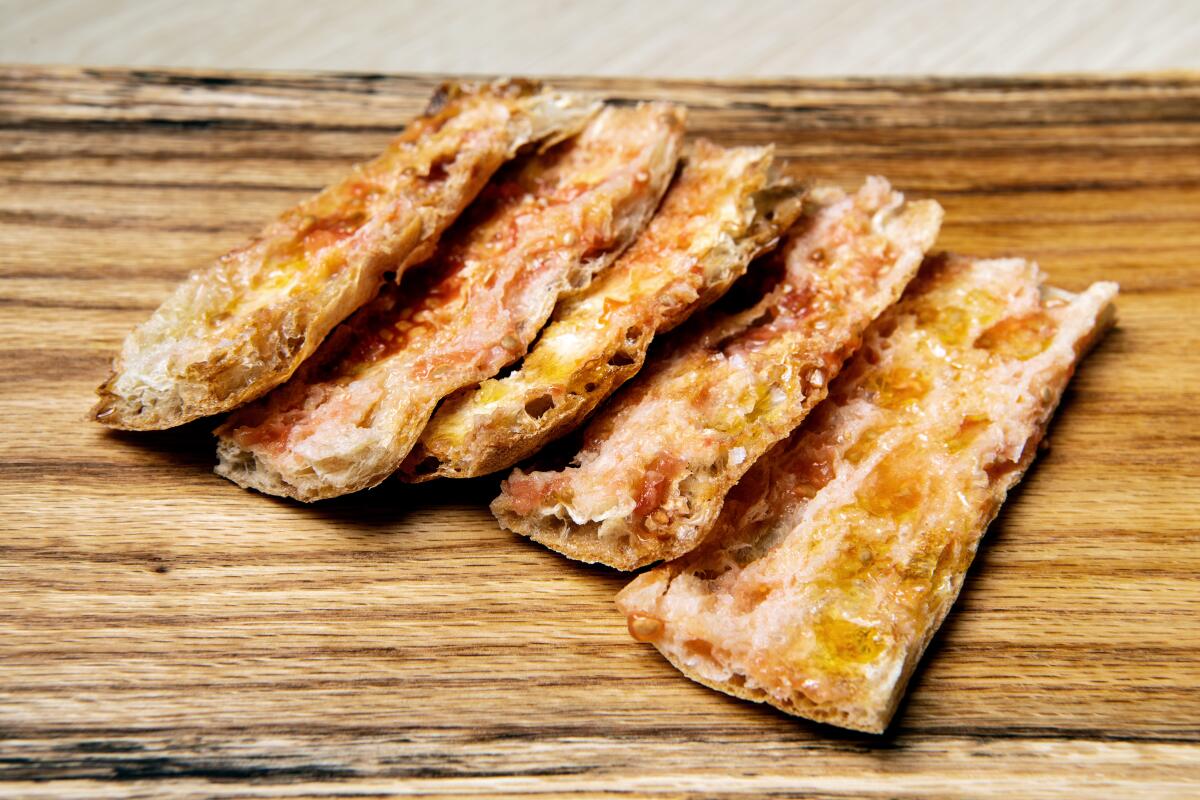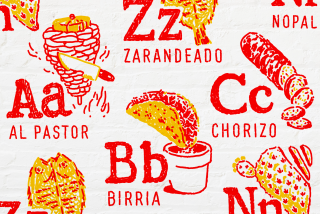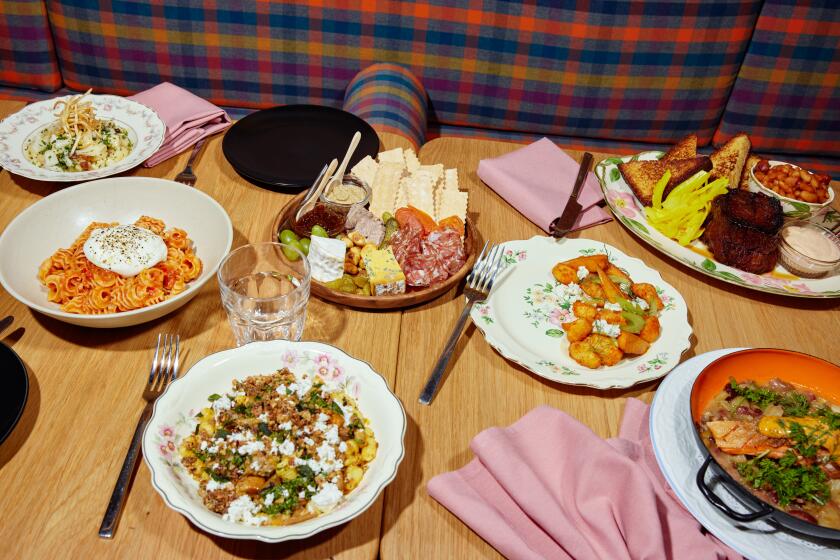Chef Aitor Zabala of Somni makes perfect pan con tomate. You can too

- Share via
There are endless variations on pan con tomate; here’s how Aitor Zabala makes it:
1. The bread:
Zabala says,“The most important thing is good bread. After that, it’s up to you.”
What he means is that the quality must be the best whether you use a crusty French baguette or thick Italian focaccia. Zabala prefers pan de cristal, which means “glass bread.” Some Spanish chefs who use pan de cristal bake the split loaves until they dry out completely and develop a cracker-like crunch; others barely toast the bread at all so that they’re soft enough to fold in half.
Zabala broils the whole loaf first until crisp, then splits and toasts the centers just until dry and golden. He likes the centers to remain a bit soft so they turn mushy post-tomate.
For those who don’t like pan de cristal (or can’t buy it), baguettes are often used. Some cut thick slices, others split the baton as if for a sandwich, and all toast to their desired crispness.
2. The tomato:
Zabala’s tomato rules are to use ripe, flavorful tomatoes and not to over-rub the bread with them. “It’s not right with too much tomato,” Zabala says. He swipes the cut side — always sliced through the equator, not from stem to end — only once and gently across the toast.
Before the tomatoes go on, some also rub garlic against the bread, but not Zabala.
3. The olive oil:
Zabala splurges on the highest-quality first-cold-pressed extra-virgin Arbequina olive oil from Spain. Unheated, its complex taste comes through when Zabala drizzles on enough to run through the bread’s rivulets and add a golden sheen to its surface.

Pan con Tomate
10 minutes. Serves 1 to 2.
Pan con tomate is bread, tomato, olive oil, salt and nothing else, so it’s important to get the best of each. Chef Aitor Zabala buys pan de cristal from a purveyor in Spain because the outside gets really crunchy while the inside stays a little soft. Ciabatta results in a similar texture and is widely available here. For the tomatoes, Zabala prefers heirloom Cherokee Purples, but any really ripe, flavorful tomatoes will work. And this is a dish where using the highest-quality extra-virgin olive oil makes a difference. Zabala likes Marqués de Valdueza, which you can buy online, or any other good Spanish Arbequina oil with fruity notes.
1 pan de cristal or ciabatta
1 ripe tomato, preferably Cherokee purple
Extra-virgin olive oil
Coarse sea salt
1 Preheat a broiler.
2 Put the whole bread on a baking sheet and broil, turning once, just until crunchy on the outside, 1 to 2 minutes. Transfer to a cutting board. When cool enough to handle, use a bread knife to slice the bread in half as if for a sandwich. Return to the pan, cut sides up and toast until golden and crisp, 1 to 2 minutes.
3 Cut the tomato in half through its equator (not from top to bottom). Gently rub the cut side of the tomatoes against the cut sides of the toasted bread to evenly coat the surface with a thin layer of tomato juice and pulp.
4 Generously drizzle olive oil all over the tomato-coated side of the bread and tilt to let the oil run into the craters of the toast. Sprinkle with salt, slice into smaller pieces and serve immediately.
Recipe adapted from Aitor Zabala.
More to Read
Eat your way across L.A.
Get our weekly Tasting Notes newsletter for reviews, news and more.
You may occasionally receive promotional content from the Los Angeles Times.











